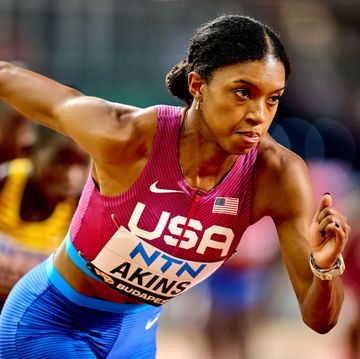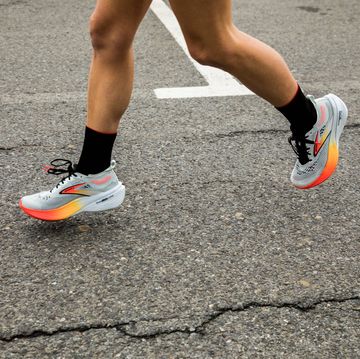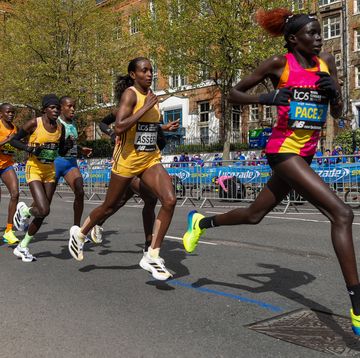If you want to get under a runner’s skin, a pretty good bet is that you could do so by calling them a “jogger.” To many, the word stings like a wasp. The thinking is that being labeled a jogger is condescending, that it implies you are a slower, less-serious version of a runner. Real runners run. Joggers are the people who aren’t consistent or don’t truly understand the sport.
I think we should be using the word more. To me, a jogger is not a slow runner, it’s someone who is running slowly. And slow, of course, is relative. As professional marathoner Noah Droddy put it, “Jog vs. Run is an effort distinction, not a speed distinction. I ran yesterday, so I jogged today.”
The Benefits of Weightlifting for Women New York Times, there are 645 definitions for the word “run,” which makes it the word with the highest number of meanings in the entire English language. You can run a business, run on fumes, run out of time. There are so many ways to use the word. So many that you start to see why the mainstream media often uses “jogger” in place of “runner.” (Side note: When joggers make the news, it feels like it’s usually for something bad. Joggers get attacked by bears or find dead bodies in the woods. A jogger is essentially another version of “Florida Man.”)
I actually like it when news outlets use “jogger.” Selfishly, it makes my job a little easier. As the news editor for Runner’s World, I’m tasked with keeping tabs on running news from around the world. That means I have dozens and dozens of Google alerts set up for specific words and phrases. This helps me find stories that include keywords like “running” or “runner,” but my feed is also polluted with news about “running backs” or people “running for president.” The internet is saturated with variations of the word “run,” but “jog” is precise. There’s little room for misinterpretation.
The real reason I think we should embrace jogging, though, is that we all do it, whether we’re seasoned racers or we just like to get outside and move. You’re jogging more than you realize. When I think of jogging, I think of interval training. Almost every speed workout I do—whether it’s on the roads or the track—involves some form of jogging. For example, I might do two sets of 10 x 200 meters at 5K pace. Between each rep, I’ll jog for 200 meters, and between the sets, I’ll walk or jog for 5 minutes before starting again. I don’t prescribe any pace for this jogging, just whatever feels good for my legs. That’s the beauty of jogging—it’s so relative to the individual. By jogging, I give myself permission to go as slow as I need. The prescribed jogging isn’t something to overlook—it’s a crucial part of the workout. The faster running is meaningless if I don’t recover from it.
I also associate jogging with the running boom of the 1970s. You know, the movement that made running cool. Millions of Americans watched Frank Shorter win gold in the marathon at the 1972 Munich Olympics and saw Kathrine Switzer Are You Breathing Wrong? We Have the Answer Boston Marathon. People realized that the sport is actually pretty accessible to the masses. So they threw on their leg warmers, laced up their jogging sneakers, and hit the roads.
Sure, that “jogging craze” was associated with the more casual side of running, and historically some might even refer to it as a fad. But who cares? Think of how many people discovered running because they had cultural permission to feel good about just chugging along. I think of that era’s connotation of jogging like vintage clothes—being a little outdated is part of what makes it cool. And trends always come back in style eventually.
Whether you’re just starting out or you’re an experienced runner, try jogging on for size. If you remember that it isn’t about being fast or slow, but about going hard or easy, you just might like how it fits.
Theo Kahler is the news editor for Runner’s World. He is a former all-conference collegiate runner who’s based in Easton, PA. Previously, he worked as the newsletters editor at Runner's World, Bicycling, and Popular Mechanics.













